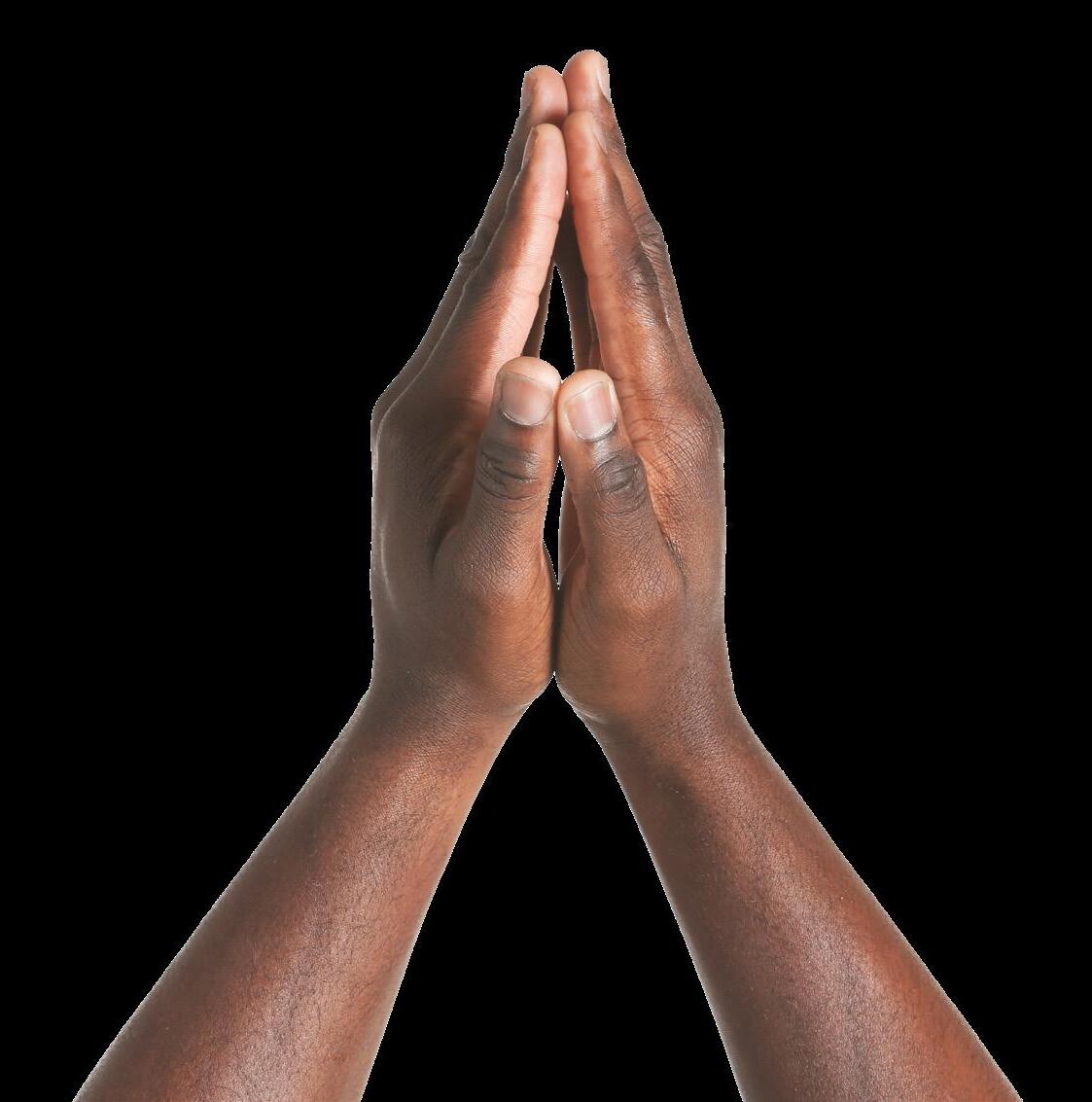Visions of Justice and Hope





One of the most contested cultural questions of our time is “What does it mean to be human and a Person of Colour?”1 There have been several racial incidents that raise this question, but perhaps even more important for the evangelical context is the question, “How can UK evangelicals engage the concerns of racial justice?”2
This resource is designed to help evangelical church leaders discuss and explore issues of racial justice in their churches on Sundays and mid-week in small groups. The material covers four topics: understanding what is racial justice, experiences of race and racism in the church, responses to how churches can tackle racism, and lastly, repairing relationships through reparative justice. Each section has a short commentary on the subject, followed by two sets of questions. The first question is for people in churches to discuss. The second is for church leaders to use either with their leadership teams or other colleagues. This is followed with a short prayer and ends signposting to further resources on the subject.
The Evangelical Alliance conducted a research project (2022–2024) on race and racial justice, to improve its work in this area. This research examined understandings of racial justice, experiences of race and racism, responses to racial injustice, and attitudes towards reparative justice. This survey was conducted using the Evangelical Alliance’s extended network; interviews with 26 evangelical leaders and a focus group of 18 young leaders of colour. The aim of the research was to better understand participants’ experiences of, and attitudes towards race, to inform the strategy of the Evangelical Alliance. The following resource uses some of the key findings to develop some thoughts and comments on the issue of racial justice within the evangelical community in the UK.

1 Since slavery, colonisation and neo-colonisation, Black people have been asking this question. Kate Coleman in Being Human: A Black British Christian Woman’s Perspective, Whitley Lectures (Oxford: Whitley Publications, 2006) explored this anthropological question. See also Joe Kapolyo, The Human Condition: Christian Perspectives Through African Eyes (Carlie, Langham Global Library, 2013).
2 The words ‘race’ and ‘racial justice’ are very contested and not everyone uses or likes to use them. But their usage in this resource is rooted in the understanding that God created one human race. These words are sometimes seen as problematic because of their history. Some Christians prefer the term ‘ethnicity’, which they argue is based in scripture and have suggested using ‘ethnic justice’, ‘inter-ethnic justice’, or ‘intercultural justice’ in place of ‘racial justice’. While we could have used these terms, they have not gained wider usage and recognition; therefore, using ‘race’ and ‘racial justice’ is still preferable to some extent. For further discussion, see the section on understanding racial justice.

Nine in ten respondents (91%) felt welcome at their church.
This proportion did not vary by ethnicity.
At the same time, most respondents of colour (51%) had experienced discrimination at church at some point in their lives.3
Just under three in ten (29%) said they experienced discrimination multiple times a year.
3 ‘People of Colour’ as used in this resource denotes people of African, African Caribbean, Asian, Latin American, and Oceanian heritage who were either born in the UK or migrated at some point. It is also used for people of mixed heritage.

Survey respondents said that the most common barriers for churches pursuing racial justice were competition for churches’ time and a sense that racial justice was not relevant to their context –most frequently because of a lack of diversity in their local area.
However, young People of Colour saw other barriers, including an unwillingness to acknowledge the need for justice, a lack of representation in church leadership teams, and uncertainty about whether church leaders were pursuing justice for the right motives.

47% had favourable views, 24% had views that were neither favourable nor unfavourable, and 29% had unfavourable views. This compared to 40%, 30%, and 29% (respectively) for White British respondents – a small enough gap to fall within the research’s margin of error.
Understanding: what is racial justice?

What does it take for you to feel comfortable in a group setting?
Have you ever felt that you did not belong somewhere before? (ie workplace, church, where you live, social media, social group, friendship network). If so, how did it make you feel and why did it make you feel that way?
What do you do to make others feel more at ease in a group setting?
Read Ephesians 2:1–22. Paul in this Bible passage describes the church in terms of the relationship between Jewish Christians and Gentile Christians.
• What was Paul’s understanding of the church in this passage?
• Why was Paul describing the reconciliation of Jews and Gentiles as a gospel imperative?
• What are the two aspects of reconciliation that Paul talks about in this passage and how do they shed more light on our understanding of the gospel?
A key question the research raised is, what is an evangelical understanding of racial justice, and what concerns should this address? Perhaps a starting point is to ask what does the Bible have to say about justice issues and is there a biblical template for addressing racial justice issues?
Anyone familiar with the Bible will soon realise that the Bible has a lot to say on justice. The Hebrew word for justice (mishpat) appeared more than 400 times in the Old Testament! Another related word in the Old Testament is ‘righteousness’ (zedek) which also appears around 540 times in the Old Testament. Both words express the character of God as the One who both acts right and judges others, and therefore wants His people to act right and live right.
A theological theme in scripture that can help us develop a biblical understanding of racial justice is the word ‘reconciliation’ (2 Corinthians 5:18–21). This concept is brought to fulfilment in the revelation that God in Christ was reconciling us back to God and all things to Himself. This truth lies at the heart of the gospel message (Colossians 1:15). Paul in Ephesians 2 made it clear that the gospel is about reconciling humanity back to God and reconciling divided humanity in a new humanity ecclesial of Jews and Gentiles. Therefore as we see the New Testament church community working towards healed relationships between Jews and Samaritans and Jews and Gentiles, this can become a template for racial reconciliation today.
It’s worth acknowledging at this point that some within the evangelical community are reluctant to use the phrase ‘racial justice’ because of its connotations and affiliation to a secular notion of social justice. Others have reservations on its use because it relies on the Enlightenment social construct of categorising humanity in terms of different races. Therefore, any evangelical biblical theology on racial justice must start with the understanding that God created one human race. But is it possible to use the term ‘racial justice’ with a biblical understanding of reconciliation? This is why the Reconciled Church,4 with exponents such as Owen Hylton, senior pastor, Beacon church, Brixon and Rosie Hopley, Reconciled Church, prefer the term ‘racial reconciliation’ to emphasise the New Testament ministry of reconciliation.
To shift our understanding of racial justice from a binary of Black and White and to locate the discourse of racial justice within intercultural theology (with a cross-cultural notion and nature of the gospel) as opposed to just social justice, we prefer the term ‘intercultural justice’. Intercultural justice brings a broader perspective of World Christianity to our understanding of racial justice by centring the experiences of not only Africans and African Caribbeans but Asians and Latin Americans, arguing for the need to create radical inclusive communities that can address racial injustice. It’s important to acknowledge the primary position of People of Colour’s experiences in the pursuit of intercultural justice. This is because in our research we found that the experiences of People of Colour were more likely to shape their understanding of racial justice than White British respondents.
71% of participants in the survey defined their understanding of racial justice as equality between ethnicities, but we want to suggest that if we are going to achieve intercultural justice, we need more than equality, we will also need equity because equality assumes that we are all starting from the same position, but that is not usually the case. Therefore we need equity to level our starting positions.
• How do you define racial justice?
• What role do you think the Bible and the gospel understanding of reconciliation should play in shaping our understanding of racial justice?
• How does your understanding of racial justice influence how your church engages with this subject?
• How can church leaders empower their congregations to engage in racial justice issues?
• How can church leaders develop ways to address racial justice as an integral part of discipleship?
• What will be the practical steps towards addressing racial justice as part of discipleship?
4 A group of Charismatic church leaders interested in how local churches can work towards reconciliation.
Dear heavenly Father, help us as your church to have a better grasp of racial justice. Give us fresh revelations from your Word to equip us on this journey and help us to constantly work towards reconciliation of humanity in this divided polarised society. Enable us to be a counter-cultural and prophetic community, speaking into racial justice concerns in society. We ask this in Jesus’ name. Amen.

Jason Roach and Jessamin Birdsall, Healing the Divide: How every Christian can advance God’s vision for racial unity and justice (Epsom: The Good Book Company, 2022).
Richard Reddie, Race for Justice: The Struggle for Equality and Inclusion in Britain and Ireland (Oxford: Lion Hudson, 2022).
Israel Olofinjana, Discipleship, Suffering and Racial Justice: Mission in a Pandemic World, (Oxford: Regnum Studies, 2021).


Watch this short video and discuss in small groups.
Where Are You From? The Game (YouTube.com) (BBC Three material)
Read the story of Hagar in Genesis 16:1–16. Hagar’s story sheds light on several aspects; firstly, she was a woman, secondly, a slave, and lastly, someone from another country, (Egypt) different to Abraham and Sarai’s culture.
• Why did Sarai and Hagar’s relationship become so unhealthy?
• Why did God send Hagar back?
• What is the significance do you think of the name Hagar gives God – El Roi, the God who sees me?
It is very encouraging to read in the research that 91% of our participants felt welcomed at their churches across all ethnicities. The church in Britain has come a long way in terms of how we welcome people from other nations. I suspect we have learnt something from the Windrush experiences of the 1940s, 50s and 60s, when many African Caribbean migrant Christians did not really feel welcomed in our churches. It has been interesting to observe the efforts that British churches have made to welcome Hong Kong migrants and Ukrainian migrants. The Baptist Union for example, appointed a Hong Kong leader to help the denomination prepare churches for the reception of Hong Kong migrants.
This improvement and encouragement in our welcoming must not be substituted for creating a sense of belonging as the research revealed that 51% of People of Colour had experienced racism in our churches and that 29% experienced it on multiple occasions within the duration of one year. This is shocking but not surprising for anyone who has paid attention to the issues of race and racism in our churches. Before the death of George Floyd, there were many conversations about the need for British churches to go the extra mile in tackling racism. However, many leaders of colour felt ignored to the extent that some have given up altogether. Since the death of George Floyd, there has been renewed interest in talking and addressing racism in our churches, church structures and organisations. Perhaps a way to begin to address racism in our churches is to recognise welcoming is not enough. We need to create a process that leads from welcoming into belonging – that pushes us to integration. The biggest question then becomes, what could this look like in your specific context?
Welcoming is the first step in our hospitality and should never be treated as the end result. Welcoming is intentionally creating spaces and contexts for new people to feel comfortable in our fellowship. Welcoming therefore goes beyond offering tea and biscuits to someone on a Sunday morning, it is ensuring that the new person feels comfortable in our church. But belonging goes deeper still, as it goes beyond the introduction of welcome to again intentionally creating spaces and contexts for new people to begin to express who they are in order to feel they can belong. If welcoming is about comfort, belonging is about identity.
Do migrants, asylum seekers and refugees feel they can honestly share some of their struggles in our churches or do they feel they will be stereotyped, judged or misunderstood? Can People of Colour in our churches express the racism that they face both at church and in society in our house groups? Creating a sense of belonging sometimes disrupts our comfort because we are not seeking to assimilate new people, we are seeking to understand where they are coming from.
Belonging then allows us to work towards achieving integration – where new people in our church do not feel like strangers but an important part of our fellowship. They feel integral to what is going on in the life of the church because they have been welcomed. They feel they belong because they can share some of their struggles and joys. And lastly, they feel like they are fully part of the community because they can contribute and share in the dynamics of church life.
• Do you think your church has a good welcome? How do new people experience the community for the first time?
• What are the pathways to belonging and integration? How long does it take for people to feel a part of your church?
• If your church is multicultural, how do you think you can create a context that allows conversations on race and racism?
• If your church is predominantly White, what steps do you think your church can begin to take so that if People of Colour were to start attending they would feel welcomed and that they belonged?
• As a church leader, what do you need to do to create a welcoming church?
• As a church leader, how will you address issues of racism in the church?
• What are the practical steps you need to take in your church to enable welcome and belonging?
Father thank you that our churches have become a place of welcome for all. We celebrate and give thanks for this. But we also repent of the sin of racism which means that People of Colour have sometimes not been treated well in our churches. Forgive us and open our eyes to our blind spots so that we can see areas we need to improve. We pray for healing for those who have been traumatised by the pain of racism. Forgive us Lord we pray. Amen.
Ben Lindsay, We need to Talk About Race: Understanding the Black Experience in White Majority Churches, London, SPCK, 2019 (Accompanying home group resources can be found here: homegroups.org.uk/series/we-need-to-talk-about-race).
Chine McDonald, God is not a White Man and other Revelations, London Hodder and Stoughton, 2021.
Kate Coleman, Metamorph: Transforming your Life and Leadership, Birmingham: 100 Movement Publishing, 2024.



For this exercise, watch this five-minute video from the Evangelical Alliance and discuss the following questions in your group.
Intercultural church resource video (YouTube.com) (OPC, Evangelical Alliance)
What is an intercultural church?
Why is an intercultural church important?
What are some of the immediate opportunities and challenges around developing an intercultural church?
Read Revelations 5 and 7. The vision of John the Apostle in these passages talks about different nations, tribes, people and languages worshipping Jesus before the throne of God.
• Why was John stressing the idea of nations, tribes and languages and not nation, tribe and language?
• Why was the idea of nations so central in the worshipping of the Lamb?
• Why did John’s revelation contain descriptions of every tribe, language, people and nation and not just a multitude?
It was very encouraging to note that half of the respondents in our survey had talked or prayed with a friend at church about issues around racial justice. This demonstrates that people in our churches are interested and engaging with this subject. More than 35% of our respondents have also listened to a sermon, whilst 30% had read a book on racial justice. However, only 33% felt racial justice was a focus for their churches. Could it be that whilst there is interest from people in our churches on the subject, the immediate context and situation of local churches means that churches as whole communities are slower to engage in this conversation? Our interviews with young leaders highlighted some specific barriers to churches adequately responding to racial injustice, including; an unwillingness to acknowledge the need for racial justice, tokenism, concern that discussing racial justice might cause division, the idea that racial justice is not biblical, a perception that racial justice is too political and a lack of representation in leadership teams.
But before we discuss how our churches can develop into radically inclusive communities, where people from different nationalities and ethnicities integrate rather than merely assimilate, it is worth zooming out to see if there are wider issues at play as to why some churches might not see racial justice as a priority for their context.
The pandemic (along with its subsequent impact and repercussions) and the more recent economic crisis, have meant that many church leaders are exhausted. Some are trying to avoid burnout whilst others are trying to keep their church viable. Survival has become the priority for many.
Others might look to their wider community for their context. Some churches might not see racial justice as a priority if they are located in a rural area in the country where the demographics are almost entirely White British. Whilst this may be the current reality for some, it is important to start to prepare for when that area might become more ethnically diverse. Migratory trends in the UK show that people are increasingly moving out of urban centres, due to economic inflation, into other less expensive areas. Therefore, the areas that are predominantly White British today could become much more ethnically diverse in the next five years.
One of the initiatives we have been working on at the Evangelical Alliance is the Intercultural Church Conversations (ICC) developed by the One People Commission (OPC) in collaboration with other partner organisations.
The One People Commission is an Evangelical Alliance network initiative that started in 2013, as a result of a prophetic challenge to the Evangelical Alliance to become more diverse in its structures. The OPC therefore serves the church in the area of unity and diversity.
Our vision is to help establish intercultural church unity, intercultural churches and intercultural justice.
The Intercultural Church Conversations (ICC) developed as a result of our vision to help promote an intercultural model of church in the UK that goes beyond a multicultural church; as we explore the difference between a multicultural church and an intercultural church.
At one of our Intercultural Church Conversations (ICC), Kate Coleman, founding director of Next Leadership, made a distinction between the crosscultural, multicultural and intercultural approaches to church.
In cross-cultural churches one culture is often considered “the norm” and all other cultures are compared or contrasted to this dominant culture. The dominant culture can be viewed as superior and other cultures are treated as inferior and can often operate in survival mode.
In multicultural churches, several cultural or ethnic groups live alongside one another, but each cultural group does not necessarily have meaningful interactions with each other. They tend to focus on representation, and less influential groups are left in survival mode.
‘Inter’ conveys the idea of sharing, reciprocity, and equality. In intercultural churches, there is robust contact between cultures and a deep understanding and respect for all cultures. Intercultural communication focuses on the mutual exchange of ideas and cultural norms and the development of deep relationships. In an intercultural church no one is left unchanged because everyone learns from one another and grows together.
• From the above descriptions of different approaches to churches, how would you describe your church?
• How can we encourage better integration in our churches?
• What are the necessary first practical steps your church could take to journey towards an intercultural church?
• What are your thoughts and reflections on an intercultural approach to church?
• As a church leader, discuss why you think racial justice might not be an area of priority for you.
• What do you see as obstacles in developing an intercultural church?

Lord Jesus, empower us to develop radical inclusive churches that can address the sin of racism. We desperately need to work towards developing intercultural churches that can integrate all people. Give us the wisdom and knowledge to be able to do this, but most importantly give us patience as we build towards this. We pray for our church leaders that you might empower and energise them by your Holy Spirit to lead us in this season. Amen..
Ben Aldous, Idina Dunmore and Mohan Seevaratnam, Intercultural Church: Shared Learning from New Communities, Oxford, Grove Books, 2020.
Osoba Otaigbe, Building Cultural Intelligence in Church and Ministry, Milton Keynes, Author House, 2016.
Anthony Reddie, Seidel Abel-Boanerges, Pam Searle, Intercultural Preaching, Oxford, Regents Park College Oxford, 2021.


Have you ever been in a situation where there has been a conflict (as a participant or observer)? It could be with your family, in a church context or with friends. What was the conflict and was it resolved? Discuss the following in your group.
If the conflict was resolved, how was it resolved?
If it was not resolved, how did you live with the tension?
What is the place of forgiveness in conflict situations?
Read 2 Samuel 12:1–14. The prophetic challenge of the Prophet Nathan confronting King David with the story of one rich man and one poor man tells us something about God’s heart for justice.
• What does the parable in this Bible passage teach us about God’s heart for correcting injustice?
• How do you think the Prophet Nathan must have felt confronting the King of Israel with this challenge?
• What does David’s response tell us about his heart?
Perhaps the most controversial part of the research was around the topic of reparative justice. This is because it received a mixed reaction both from White British respondents and People of Colour. Across the board, many respondents named some of the major problems in the conversations on reparative justice; Do we agree on what it means and what it looks like? How do you implement it? Is it always financial and if so, who owes the money? And how do you determine who receives reparations?
Many responses suggested an association with reparative justice with monetary value. But is that the only understanding of what reparative justice is all about? Could it be more helpful if we reframe reparative justice in terms of repairing relationships? bringing us back to the New Testament teaching on reconciliation. The secular conversation in Britain on reparative justice is very loud at the moment with individual families who have profited from slavery giving back what was stolen, certain institutions such as museums returning stolen artefacts, and the Royal family’s commissioning of research into certain aspects of Royal history tainted by slavery. The UK church is still trying to work out what its position ought to be in these conversations therefore there is a significant lack of clarity on the subject. The Church of England debate on the need to increase the £100 million reparations fund to £1 billion and the backlash it received highlights the volatile nature of this conversation. In addition, there is a lack of biblical resources on the subject
at present leaving many evangelical Christians wondering what does the Bible have to say about reparative justice?
Possibly a good place to start for evangelicals is understanding the theme of restitution in the Old Testament which was a religious economic system set in place to administer justice for the stealing of livestock and properties and what must be done to return them to their rightful owner (see Exodus 22:1, Leviticus 6:4–5, Numbers 5:5–10, 2 Samuel 12:6, Ezekiel 33:14–15 and Luke 3:10–14). Whilst it could be argued that this was an Old Testament practice, we see an example in the New Testament through the story of Zacchaeus when he offered to repay anyone he had exploited. What is significant in this story is that Jesus did not demand Zaccheaus repay what he had stolen, instead, Zacchaeus demonstrated the fruits of repentance by intentionally offering to repair the damage he had done.
Another thing to consider in this debate is that the term reparative justice sounds to many like a form of retributive justice and punitive justice. Reframing reparative justice as a means to repair damaged relationships allows us to explore the concept as a route to holistic healing. Reparative justice becomes repairing justice, that is, repairing and addressing the past so that reconciliation, healing, and peace can take place. This approach will be holistic looking at repairing not just only in financial terms but through holistic healing that embraces spiritual, psychological, social and spiritual restoration from a traumatic past.
The founders of the Evangelical Alliance in 1846, had a long and rigorous discussion on the issue of slavery. One of the catalysts for that debate was Rev E Frasier, a Wesleyan minister from Jamaica, who spoke about slavery and the enslavement of Africans. Another person present during the debate was Rev Howard Hinton, the then-general secretary of the Baptist Union who proposed a motion to bar slaveholders from becoming members of the formed alliance. The debate that ensued during the conference centred around whether to accept as members American slave owners. This was before the emancipation of slaves in the US, and several American evangelicals objected. After several discussions, a compromise was reached that the Evangelical Alliance would be an affiliation of autonomous regional networks rather than an integrated international organisation. However, later when the American contingent went back to their country to form their regional network, they eventually barred from membership any slave owners to the extent that the evangelical network in the United States lost a lot of members in the South as that was the region most impacted by slave owners. Subsequently, when British evangelicals came together to form Evangelical Alliance UK, discussions came up about barring those who had shares or owned companies that were involved in trading slaves. Sadly, British evangelicals did not reject from membership those who owned shares in slave companies. This complicated history with long debates on the issues of slavery and by listening to a Jamaican catalyst means that evangelicals definitely have a part to play in contributing to the conversations on reparative justice. Can we once again listen to marginal voices and enter the debate on how we can engage in repairing the damages of the past?
• What difference does it make using the term ‘repairing justice’ when thinking about reparative justice?
• What is your understanding of reparative justice?
• How can the church approach this controversial subject?
• How can this subject be discussed in the church?
• What is the role of the church in repairing relationships?
• As a church leader, how should the church if at all, engage in secular conversations on reparative justice?
• What do you think the church has to offer to this conversation?

Dear heavenly Father, help us to work towards repairing the damages of the past. We believe that the work of the cross is the best way to reconcile humanity. Therefore, give us the wisdom to know how to apply this to bring about holistic healing and repair. Forgive us Lord for the sins of the past that have led to intergenerational trauma, conflict and pain.
Whilst there are several resources from a secular perspective on the subject, there is a lack of biblical and theological resources on the subject in the UK. Below are some of the few that exist:
After the Flood, The Church, Slavery and Reconciliation. Documentary video produced by Movement for Justice and Reconciliation (MJR) mjr-uk.com/ aftertheflood.html
Visions of Colour, A six-session video resource produced by the Baptist Union baptist.org.uk/Groups/379637/Visions_of_Colour.aspx
Eleasah Louise Phoenix (ed), We will Repay: A Biblical Case-Study for Reparations, Racial Justice Advocacy Forum, Baptists Together and Churches Together in England. 2024 (A Bible study resource: ctbi.org.uk/wewillrepay/ )